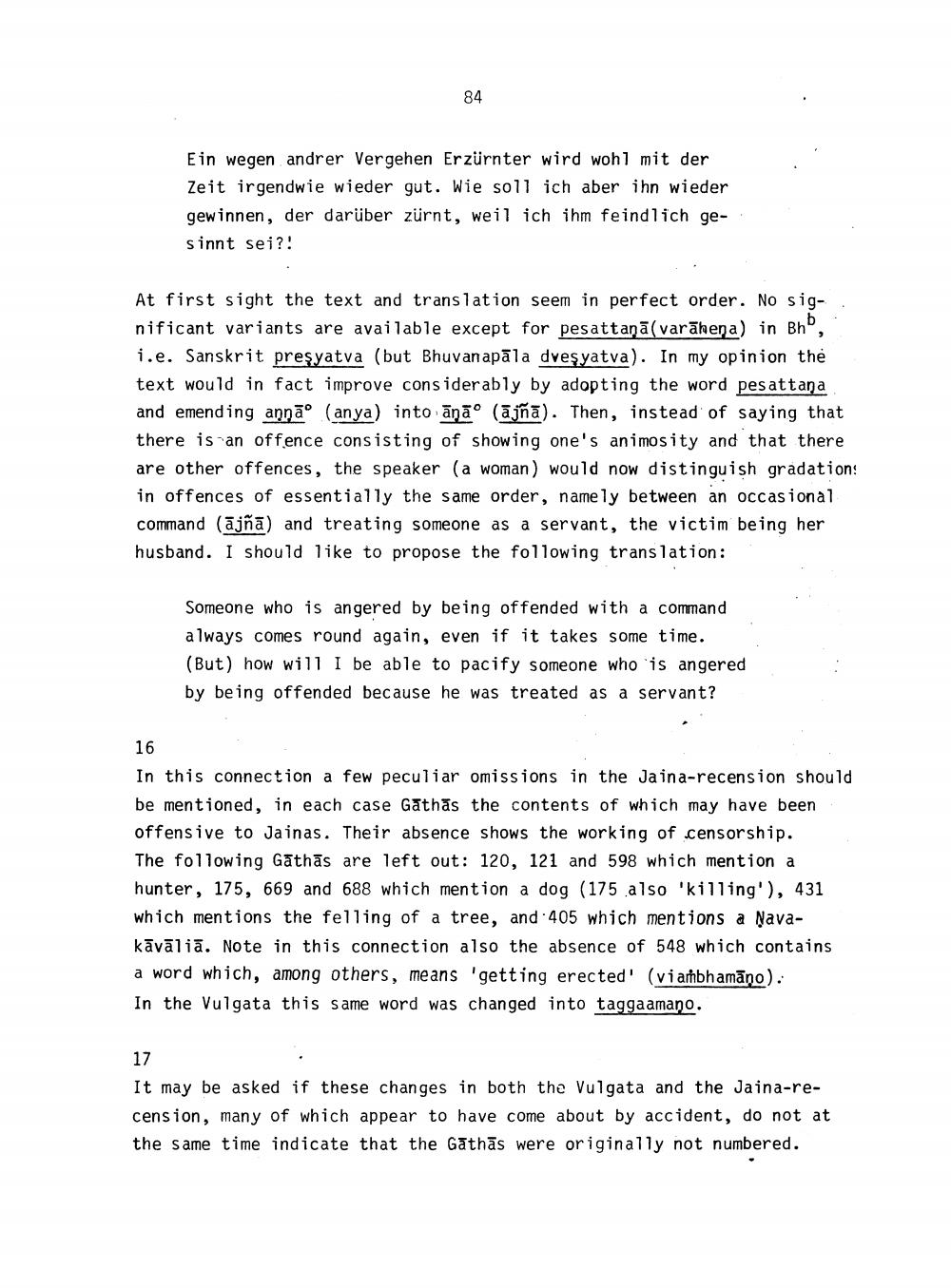________________
84
Ein wegen andrer Vergehen Er zürnter wird wohl mit der Zeit irgendwie wieder gut. Wie soll ich aber ihn wieder gewinnen, der darüber zürnt, weil ich ihm feindlich gesinnt sei?!
At first sight the text and translation seem in perfect order. No significant variants are available except for pesattaņā(varākena) in Bho, i.e. Sanskrit preşyatva (but Bhuvanapāla dveşyatva). In my opinion the text would in fact improve considerably by adopting the word pesattana and emending annā (anya) into ānā (ājmā). Then, instead of saying that there is an offence consisting of showing one's animosity and that there are other offences, the speaker (a woman) would now distinguish gradation: in offences of essentially the same order, namely between an occasional command (ājñā) and treating someone as a servant, the victim being her husband. I should like to propose the following translation:
Someone who is angered by being offended with a command always comes round again, even if it takes some time. (But) how will I be able to pacify someone who is angered by being offended because he was treated as a servant?
16
In this connection a few peculiar omissions in the Jaina-recension should be mentioned, in each case Gathas the contents of which may have been offensive to Jainas. Their absence shows the working of censorship. The following Gāthās are left out: 120, 121 and 598 which mention a hunter, 175, 669 and 688 which mention a dog (175 also 'killing'), 431 which mentions the felling of a tree, and 405 which mentions a Navakāvāliā. Note in this connection also the absence of 548 which contains a word which, among others, means 'getting erected' (viabh amāņo). In the Vulgata this same word was changed into taggaamano.
17 It may be asked if these changes in both the Vulgata and the Jaina-recension, many of which appear to have come about by accident, do not at the same time indicate that the Gathās were originally not numbered.




